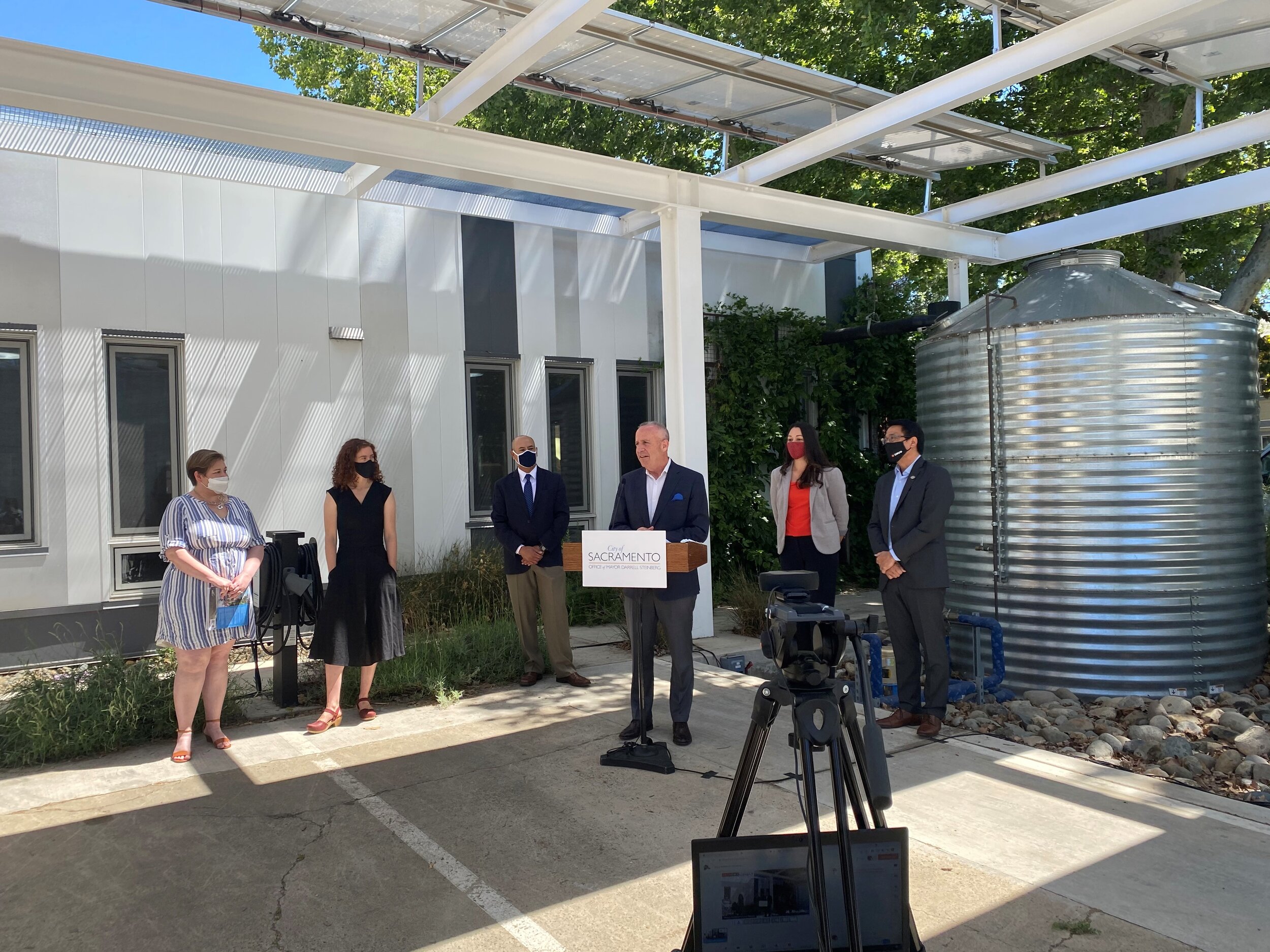City Council adopts electrification ordinance crucial to meeting climate goals
The Sacramento City Council voted 7-2 on Tuesday to adopt an ordinance requiring new homes, low-rise apartment buildings and commercial structures to run entirely on electricity starting in 2023.
The ArchNexus building on R Street runs entirely on electric power produced by solar panels on the roof
Gas heating and cooking is a significant source of the greenhouse gas emissions that cause climate change, the effects of which are increasingly being felt in Sacramento and California as the summers become hotter and drier.
The ordinance, supported by both the Sacramento Municipal Utility District and Pacific Gas and Electric Co., will phase in electrification requirements, starting with new residential and commercial structures with three stories or less starting in 2023. The ordinance does not require retrofitting of existing buildings. To date, 44 other cities in California have adopted electrification ordinances that are already in effect or go into effect before 2023, including San Francisco, San Jose and Oakland.
At the request of Councilmember Katie Valenzuela, who has made a career as an environmental justice advocate, Mayor Darrell Steinberg amended the ordinance to include public findings about the negative impact of natural gas pollution on vulnerable communities and direction for City staff to come back to Council within 60 days with a workplan for crafting a strategy by 2022 to retrofit existing buildings to electricity by 2045 without additional costs or displacement risks to affected communities.
“What Councilmember Valenzuela is doing is helping us prepare for the next stage of this debate,” Mayor Steinberg said.
Mayor Steinberg joined utility, air quality and environmental leaders last week to promote passage of the electrification ordinance
“This is a proud night,” the mayor said. “We have stated as a city that we aim to get to carbon neutral by 2045. Climate change is not some esoteric issue. There are specific public health consequences now in our Sacramento community We have some of the worst air quality in the region. If we are not aggressive about reducing the use of fossil fuels, we are leaving generations of children to live with the same impacts.”
Besides addressing climate change, another reason to wean new construction away from gas is that gas appliances emit fumes that increase the risk for respiratory disease and contribute to dirtier air and ozone, which is already a persistent problem in the Central Valley.
Constructing new buildings to be all-electric takes advantage of the clean power that the Sacramento Municipal Utility District produces, maximizing the benefit of SMUD’s commitment to zero-carbon electricity by 2030. Shifting new buildings to electricity ensures they are clean, affordable, and resilient. This is why building electrification is a key principal for the 2040 General Plan, as committed by the City Council.
The ordinance contains exemptions lasting until 2025 for restaurants cooking with gas, some manufacturing equipment and hot water heating for regulated affordable housing projects. Mayor Steinberg added an amendment Tuesday that specifies that if the technology to require construction of an all-electric building for restaurants, manufacturing facilities or affordable housing is not feasible and available by July 1, 2025, the Council shall continue extending the exemption.
Over time, building all electric could save building owners money. Studies show construction costs for electric buildings can be considerably lower, particularly once SMUD incentives are factored in. And natural gas prices are expected to rise sharply because gas infrastructure is costly to maintain and keep safe.
Electrifying buildings was one of the primary recommendation of the Mayors’ Commission on Climate Change, a joint commission created by Mayor Steinberg and then-West Sacramento Mayor Christopher Cabaldon to formulate strategies to get the two cities to carbon neutrality by 2045.





